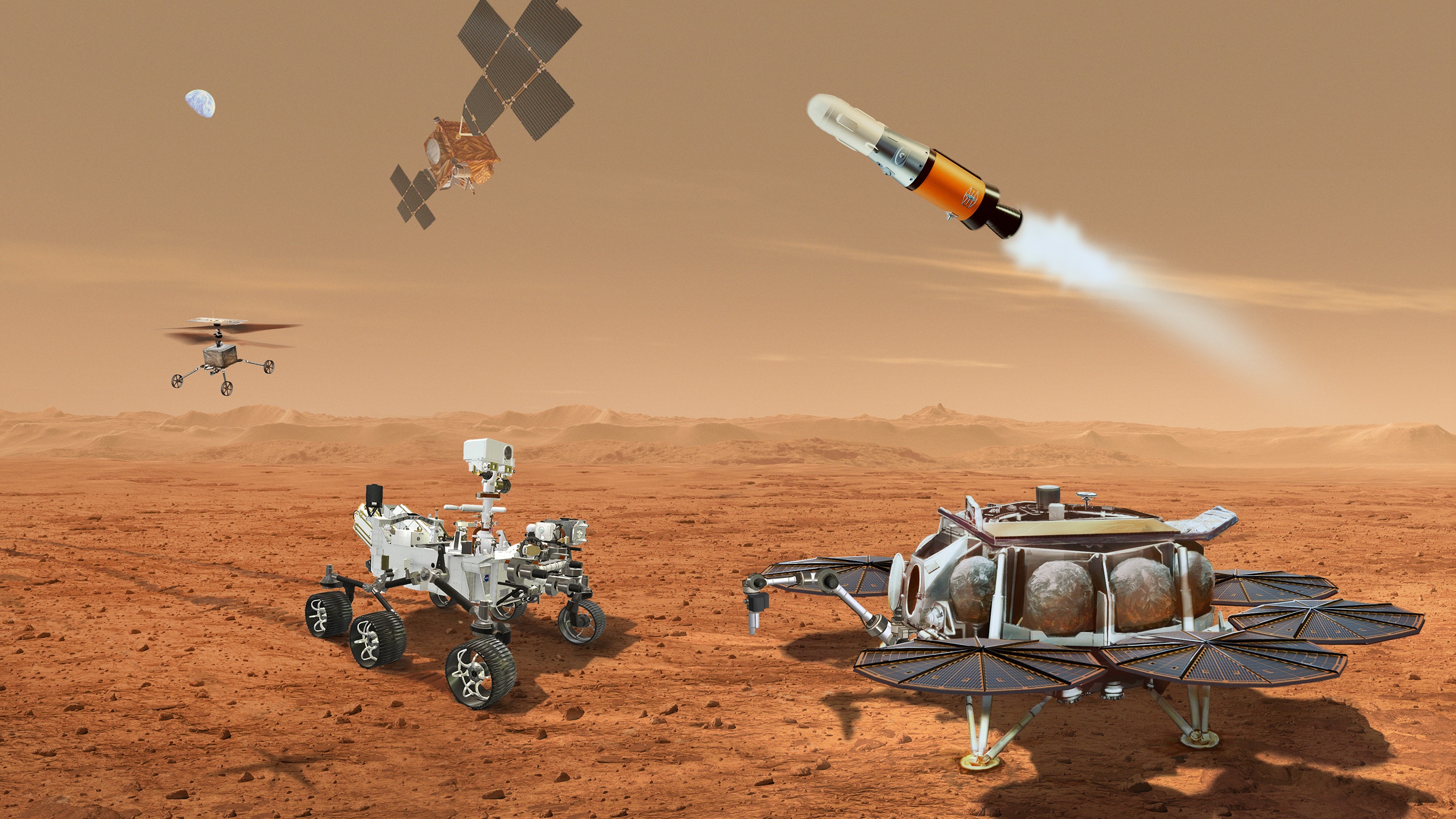NASA to address concerns about Mars Sample Return mission's 'unrealistic budget'
A NASA review board raised concerns around the Mars Sample Return mission’s budget, scheduling and organization.

NASA is forming a response team after an independent review board examined the agency’s ongoing plans and objectives for its upcoming mission to retrieve samples from Mars.
The Mars Sample Return, an operation in collaboration with the European Space Agency (ESA), would involve the first-ever launch into space from another planet and the first-ever rendezvous in orbit around another planet.
"NASA has plans for a robust Moon to Mars exploration approach," NASA’s associate administrator for science, Nicola Fox, said in a statement. "Mars is [a] rich destination for scientific discovery and understanding the red planet supports the agency’s Artemis program to ultimately send humans to Mars."
Related: NASA's Mars Sample Return in jeopardy after US Senate questions budget
Earlier this month, the review board submitted a report to NASA underscoring important scientific objectives of the mission but also pointed out potential budgetary issues, among other concerns. Having examined the mission for two months, the review board's report specifically included 20 observations and 59 suggestions regarding the proposed mission.
According to the report, "MSR is a deep-space exploration priority for NASA, in collaboration with ESA. However, MSR was established with unrealistic budget and schedule expectations from the beginning. MSR was also organized under an unwieldy structure," and as a result, "there is currently no credible, congruent technical, nor properly margined schedule, cost, and technical baseline that can be accomplished with the likely available funding."
As Ars Technica points out, the main concern about the budget of the Mars Sample Return mission is that its ballooning costs could quickly crowd out other projects and priorities in the long run. That's because the only realistic way to launch the mission by 2030, as the team hopes for, would require between $8 billion to $11 billion.
Breaking space news, the latest updates on rocket launches, skywatching events and more!
Among the report's recommendations, the topline suggestion is for NASA to better communicate the mission’s importance to the public, as well as reassess the mission's management structure to reduce overhead.
"Mars Sample Return is a very complex program and campaign with multiple parallel developments, interfaces, and complexities," said Orlando Figueroa, the chair of the independent review board that examined the mission plan. "The development of this historic effort follows many decades of strategic investment."
The review board was created by NASA in May 2023 to examine the mission's technical, financial and scheduling plans before the mission design can be approved. The board engaged a diverse pool of industry and scientific experts both from within NASA itself and outside the agency to evaluate various aspects of the project.
Now that the report has been submitted, NASA is announcing the creation of a team under the guidance of NASA’s deputy associate administrator for science, Sandra Connelly, to evaluate the Mars Sample Return report. The response team will have until the second quarter of 2024 to propose a course of action in light of the new report’s findings and recommendations.
The official mission cost and schedule confirmation by the agency will be deferred until the review’s conclusion.
"Independent review boards like the one we commissioned for Mars Sample Return help review whether we’re on the right track to meet our mission goals within the appropriate budget," Connelly said. "We thank the board for its work, and now our job is to assess the report and address if there are elements of the program that need to change."
John is a science and technology journalist and Space.com contributor. He received his B.A. in English and his M.A. in Computer Science from the City University of New York, Brooklyn College, and has bylines with TechRadar, Live Science, GamesRadar, and other publications. You can find him on Bluesky at @johnloeffler.bsky.social or seeking out dark sky country for spectacular views of the cosmos.
